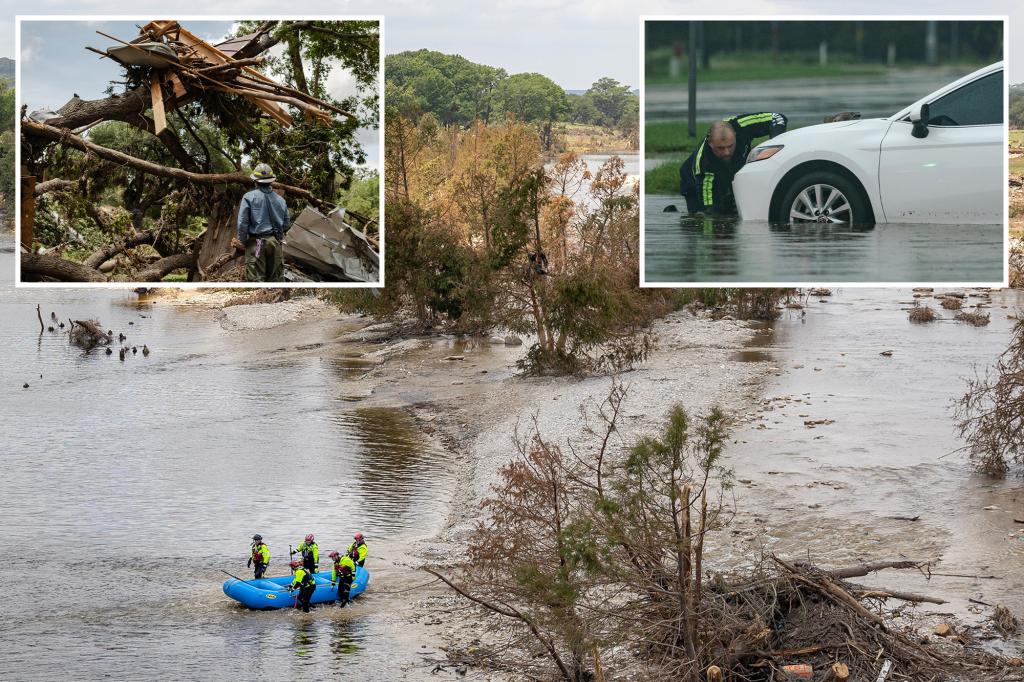Unprecedented Heatwave: Russian Cities Shatter Temperature Records
In a striking turn of events, an unprecedented heatwave has gripped Russia, leading to alarming temperature spikes across the nation. Recent data indicates that ten cities have registered their highest temperatures ever recorded, raising significant concerns about climate change and its far-reaching implications. This extraordinary meteorological phenomenon has not only caught the attention of environmental scientists and policymakers but also ordinary citizens who are experiencing the brunt of this extreme weather.
The Heatwave in Numbers
As the summer of 2023 unfolds, regions across Russia have reported temperatures soaring well above previous records. Cities such as Vladivostok, Yekaterinburg, and Novosibirsk have all experienced unprecedented heat, with temperatures reaching highs of 40°C (104°F) or more. The implications of these soaring temperatures are multifaceted, affecting everything from public health to agriculture and even the economy.
To put this into perspective, here are some of the staggering statistics:
- Vladivostok: Recorded a temperature of 41.2°C, surpassing its previous record by 2.5°C.
- Yekaterinburg: Registered 39.8°C, marking an all-time high for the city.
- Novosibirsk: Hit a blistering 40.5°C, breaking its historical record.
- Moscow: Experienced temperatures reaching 38.0°C, the hottest since records began.
These figures illustrate not only the severity of this heatwave but also its pervasive impact across a vast expanse of Russia.
Climate Change: The Bigger Picture
This unprecedented heatwave raises pressing questions about climate change and its effects on Russia and the world. Scientists have long warned that climate change would lead to more frequent and intense weather events, and this heatwave serves as a stark reminder of those predictions. The increase in greenhouse gases, primarily from human activities, has led to a warming planet, and extreme weather events such as this heatwave are becoming more common.
According to climate experts, the rising temperatures in Russia are not merely a product of natural variability but are significantly influenced by anthropogenic factors. The Arctic region, in particular, has warmed at a rate nearly twice that of the global average, leading to shifts in weather patterns that can result in prolonged heatwaves across the continent.
Local Responses to the Heatwave
The impact of this heatwave is palpable, prompting a range of responses from local governments and communities. As temperatures soar, authorities are implementing measures to mitigate the effects on public health and safety. Here are some of the key responses:
- Public Health Advisories: Local health departments are issuing warnings about heat-related illnesses, urging residents to stay hydrated and avoid outdoor activities during peak hours.
- Cooling Centers: Many cities have established cooling centers where residents can seek refuge from the heat, particularly vulnerable populations such as the elderly and those with pre-existing health conditions.
- Agricultural Adjustments: Farmers are adapting their practices to cope with the extreme heat, including altering planting times and employing irrigation systems to sustain crops.
The community response has also been significant, with citizens banding together to support one another during this challenging time. Neighborhood initiatives have sprung up, providing assistance to those most affected by the heat.
Long-term Implications for Russia
As the effects of climate change become more pronounced, the long-term implications for Russia are profound. The country is home to vast agricultural regions, and the increased frequency of heatwaves poses a serious threat to food security. Crop yields may decline as farmers face challenges related to water scarcity and soil degradation.
Moreover, the health risks associated with extreme heat cannot be overlooked. Heat-related illnesses, such as heat exhaustion and heat stroke, can lead to increased mortality rates, particularly among vulnerable populations. The strain on healthcare systems may exacerbate existing challenges, necessitating preparedness and robust public health strategies.
Global Perspectives and Solutions
This unprecedented heatwave in Russia is not an isolated incident. Similar weather patterns are being observed globally, emphasizing the need for a coordinated response to climate change. Governments, organizations, and individuals must come together to address this pressing issue. Here are some solutions and strategies that can be adopted:
- Investment in Renewable Energy: Transitioning to renewable energy sources can significantly reduce greenhouse gas emissions and mitigate the effects of climate change.
- Climate Resilience Planning: Cities should develop and implement climate resilience plans to prepare for extreme weather events and protect vulnerable populations.
- Public Awareness Campaigns: Educating the public about the impacts of climate change and promoting sustainable practices can foster community engagement and support for necessary changes.
By taking proactive measures, society can work towards a more sustainable future, safeguarding the environment for generations to come.
The Road Ahead
As Russia grapples with this unprecedented heatwave, it serves as a crucial reminder of the urgent need to address climate change. The records shattered across the nation highlight a critical juncture in our understanding of weather patterns and their implications. It is imperative that we recognize the interconnectedness of our planet and the collective responsibility we share in combating climate change.
While the challenges ahead are daunting, there is hope in the form of innovation, community action, and global cooperation. The response to this heatwave can serve as a catalyst for change, prompting individuals and governments alike to take meaningful steps toward a sustainable future. In the face of adversity, humanity has often risen to the occasion, and the current climate crisis may prove no different.
In conclusion, the unprecedented heatwave in Russia is a call to action. It is an opportunity for us all to reflect on our impact on the environment and to take steps toward a more sustainable world. Together, we can forge a path forward that prioritizes the health of our planet and its inhabitants.
See more Your Daily Weather



